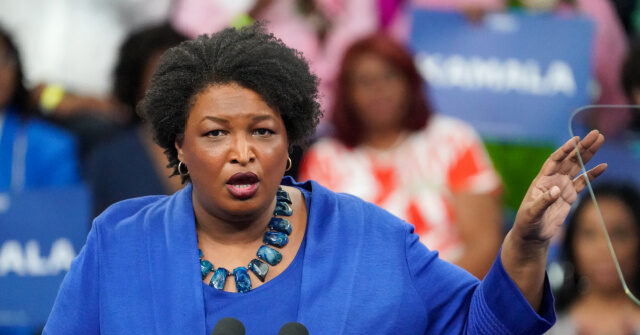In a recent CNN appearance, former Georgia gubernatorial candidate Stacey Abrams highlighted the challenges Vice President Kamala Harris faces due to sexism and racism, particularly within segments of the black male population. Her comments came in light of remarks made by Georgia pastor Jamal Bryant, who emphasized the detrimental impact of misogyny on the black community. Bryant stated that if black men had voted differently in past elections, Abrams would likely have won the governorship, underlying the existence of sexism within the community. This discussion points to a larger issue of gender bias, which can impact political participation and representation for women, especially women of color like Harris.
During the interview, Abrams acknowledged the reality of sexism as a significant issue while also defending the engagement Harris has had with black male voters. She asserted that black men represent a crucial segment of the Democratic voter base, ranking as the second strongest demographic within that group. According to Abrams, the focus shouldn’t be solely on the perception that support for Harris is lacking among black men; rather, it should recognize Harris’s efforts to connect with their specific concerns and issues. This nuanced perspective provides a more hopeful outlook on black male voter participation, contradicting narratives of apathy or disengagement.
Despite Abrams’ optimism, she did not deny the presence of underlying sexism and racism within electoral dynamics. These systemic issues necessitate that leaders like Harris actively engage with diverse voter blocks and show respect for their unique experiences and concerns. Abrams pointed out that Harris’s approach of meeting voters where they are and directly addressing their needs is crucial, reinforcing the idea that political success requires acknowledgment of these complex interactions between race and gender in the electorate.
Amplifying this discussion, former President Barack Obama has also recognized a shift in support for Harris among black men. In a recent gathering in Pittsburgh, Obama remarked on the noticeable dip in enthusiasm for Harris compared to the excitement generated during his own campaign. His commentary underscored a wider struggle to galvanize black male voters, implying that factors related to identity and experience continue to play a significant role in determining voting behaviors within this demographic. Obama’s reflections suggest that personal connections and shared experiences may be essential in fostering support for candidates from the black community.
Adding to this discourse, Abrams signifies the importance of voter outreach directed specifically at black men to alleviate concerns about their political participation. By recognizing and addressing the distinct issues faced by this demographic, she believes that political figures can foster greater engagement and mobilization among black men. Abrams suggests that the key to improving support for Harris lies in continued dialogue and outreach that affirm the voices and concerns of black men in the political arena.
In conclusion, the intersection of race and gender within the political context poses lasting challenges for leaders like Kamala Harris. As both Abrams and Obama have highlighted, there is a need to engage openly with voters about the issues that matter to them, while also combating the sexism and racism that can undermine electoral support. This dialogue is crucial not only for the success of individual politicians but also for advancing the broader cause of equitable representation within the political sphere. Through sustained engagement and acknowledgment of these challenges, there may be a pathway toward greater unity and involvement among black voters, which is vital for the Democratic Party and the future of electoral politics.

